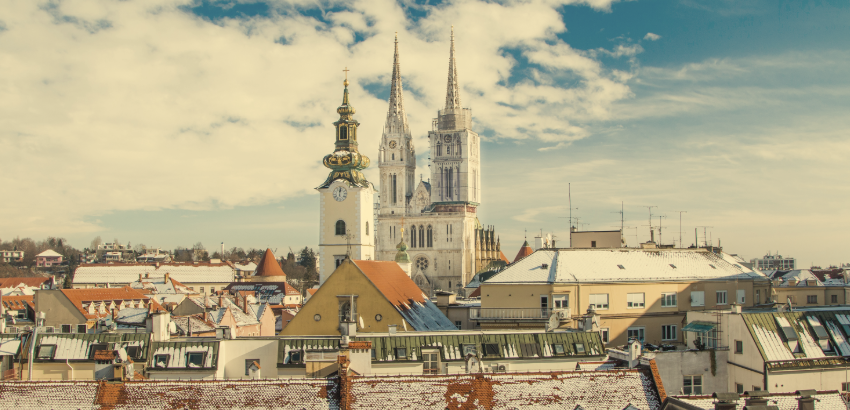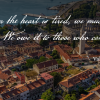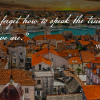
Published: July 23, 2002
View the Original Newsletter: Iskra-109.pdf
About This Issue
In Iskra No. 109, Valentina Krčmar delivers one of her most uncompromising commentaries yet, examining the gap between justice as an ideal and justice as it is practiced in Croatia. Her reflections blend personal experience, political critique, and moral conviction — a powerful reminder that democracy without fairness is only theatre.
Editorial – “Letter from the Editor”
Valentina opens with warmth, welcoming readers to an exciting moment in Toronto’s Croatian community: the World Youth Day 2002 visit of Pope John Paul II. She celebrates the volunteers who opened their homes to pilgrims from Croatia, Bosnia and Herzegovina, and even Serbia and Montenegro, calling this hospitality a sign of true faith and reconciliation.
Her letter also acknowledges practical struggles: poor print quality due to limited funds and the constant need for community support. With gratitude, she thanks several donors who made that month’s issue possible. The tone is humble yet steadfast — a woman managing a newspaper on passion, perseverance, and principle.
Motrišta – “The Myth of the Legal State”
The feature essay is a searing critique of Croatia’s political and judicial system. Valentina contrasts Canada — where ministers resign over the smallest ethical breaches — with a Croatia where corruption and favoritism have become routine.
She recalls the Radimir Čačić traffic accident in Varaždin, in which the minister allegedly struck another vehicle and drove off without consequence. In any true legal state, she argues, this would prompt an apology or resignation — but in Croatia, the event barely made headlines.
From there, she explores broader injustices:
-
War refugees forced to pay rent to those who once drove them from their homes.
-
Police officers punished for exposing misconduct by powerful figures.
-
Judges detached from the suffering of ordinary citizens.
Her anger is sharp but mournful. “Yesterday’s refugees,” she writes, “are today’s guilty ones — paying for the misfortune of their own survival.”
She likens Croatia to a “banana republic,” a country ruled by personal connections rather than law. The sprawling villas outside Zagreb, the unchecked coastal development, and the absence of accountability all serve as symbols of a system gone astray.
Still, amid the frustration lies hope: a belief that honest citizens can reclaim their nation if they insist on true equality before the law.
“This is my Croatia too,” she writes. “Yours and mine — the only one we have. Let’s protect it with real laws. Otherwise …”
Community News
This issue radiates with local pride and faith.
-
Toronto’s Croatian community prepares to welcome Pope John Paul II and the tens of thousands attending World Youth Day.
-
Moving tributes honor Stanko Janžić and Barica Kecerin, remembered for their deep devotion and generosity.
-
A heartfelt reader letter celebrates Valentina’s decision to continue publishing Iskra despite recent turmoil, urging unity and integrity within the Croatian Credit Union.
-
The Kitchener-Waterloo Croatian Congress shares a joyful account of celebrating both Croatian Statehood Day and Canada Day, highlighting the pride of a thriving diaspora.
Politics and Commentary
Dr. Tihomir Janjiček contributes a detailed analysis of the political crisis following Ivica Račan’s resignation and the internal fractures of the HDZ. His essay on Ivić Pašalić’s departure from the party underscores a larger point echoed throughout the issue: Croatia’s leadership crisis is moral as much as political.
Health & Lifestyle
Dr. Donatella Vrbanec’s piece on child nutrition provides one of the issue’s most practical segments, outlining balanced diets and daily energy needs for children. It stresses the importance of routine, variety, and healthy relationships with food — a thoughtful addition amid the heavy political tone.
Višnja Milas Matutinović offers comforting traditional recipes, including savory and sweet bučnica and novljanski prisnac, tying cultural heritage to daily nourishment.
Poetry and Humor
Lighthearted moments appear in Pajo Kanižaj’s playful “Number Poem” and children’s verses celebrating rural life and birdsong — a touch of innocence contrasting the weight of Valentina’s editorial.
Closing Thought
Iskra No. 109 ends on a familiar note of conviction. Valentina insists that silence is complicity, that Croatians at home and abroad share a duty to demand justice and dignity. Her closing words are both plea and promise — that moral courage, however small, can still be the spark that keeps Iskra alive.




